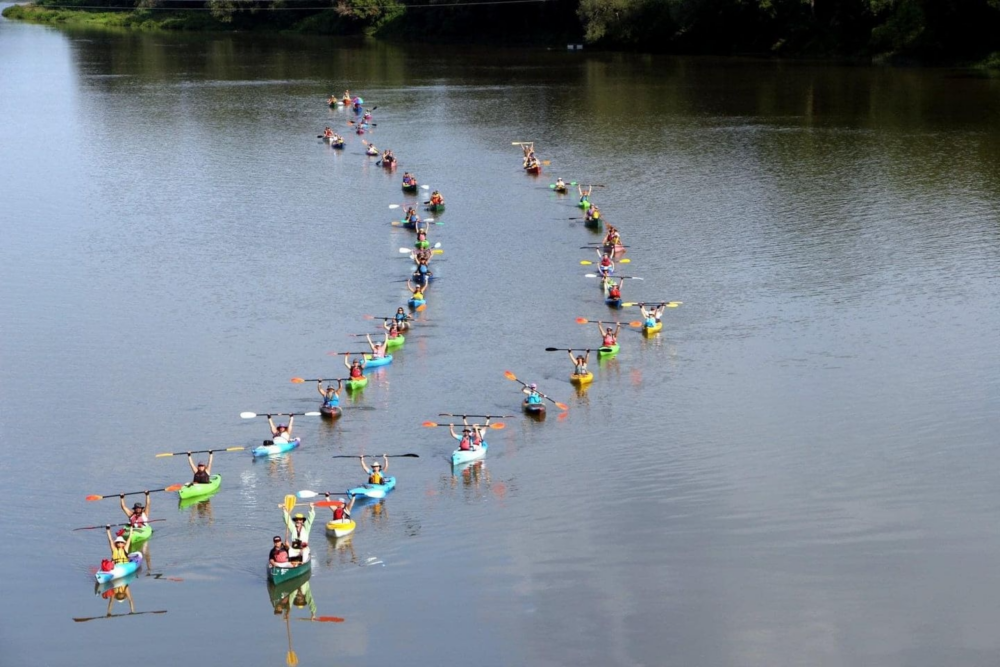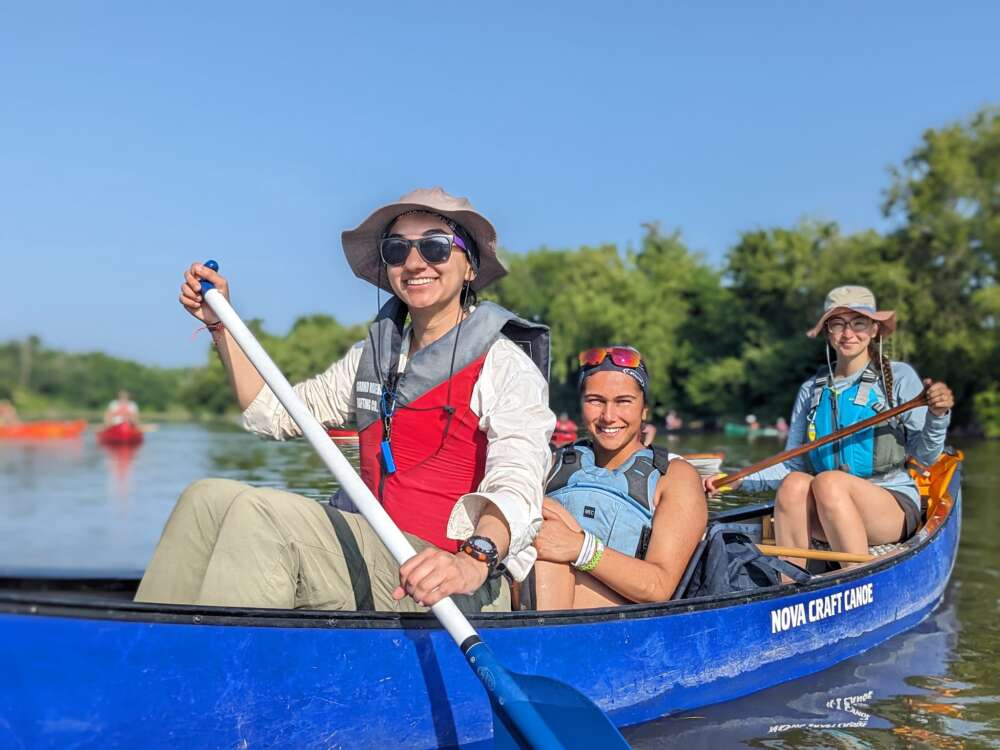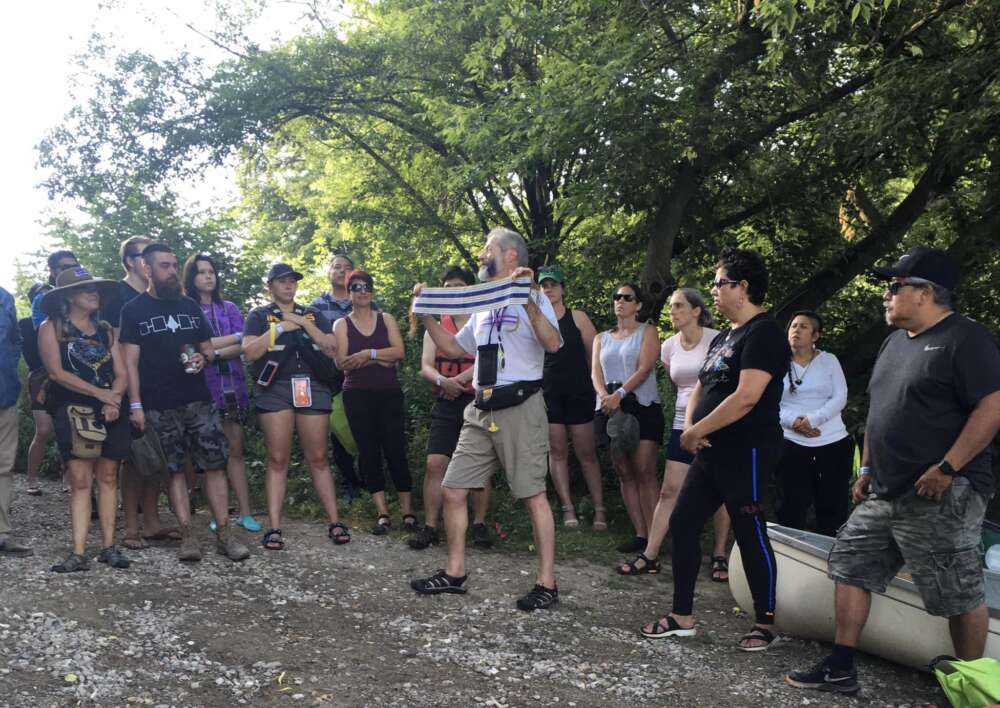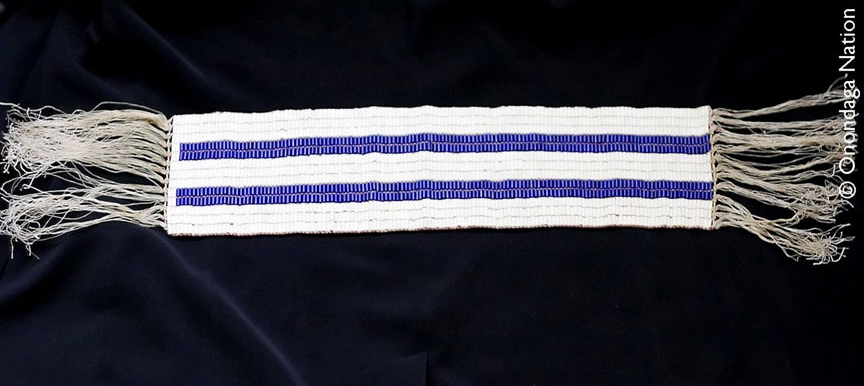Two rows of canoeists will soon dip their paddles into the Grand River, as they travel the waters from Cambridge to Lake Erie. This 10-day trip, on its ninth anniversary, is infused with more than 400 years of history, honouring a living peace treaty between the Haudenosaunee and the Dutch settlers.
Paddling along one row will be members of the Six Nations and other Indigenous groups; along the other row will be non-Indigenous allies, including University of Guelph students and other community members, listening and learning how to become better treaty partners.

This is Two Row on the Grand. More than a canoe trip, the event has been described as a transformative, once-in-a-lifetime experiential learning opportunity.
Janet Doner, manager of campus and community-integrated learning and lead supervisor of the U of G group attending, says: “Each day starts out with the Haudenosaunee Thanksgiving Address, which thanks all the beings from the earth to the sky and asks that they carry us safely throughout the day.”
At night, she says, participants come together to share meals and partake in Indigenous teachings and storytelling.
Doner participated in 2022 and knew she had to share this experience. She helped secure the funds to lead 10 students in 2023 and to ensure 10 more students could participate this year as part of her passion to bring land-based learning and relationship-building to the broader U of G community.
“Relationship building is a large part of truth and reconciliation,” Doner says. “Those relationships change and inspire students and others, myself included. They let us reflect: ‘How do I want to be in relationship to this land and community around me?’”
Two Row Wampum to be symbolically re-enacted during canoe trip
Beginning in 2014, Two Row on the Grand symbolically re-enacts the Gaswéñdah, or Two Row Wampum. This is a living peace treaty established in 1613 between the Haudenosaunee (Iroquois) and non-Indigenous groups, beginning with the Dutch, the English and now Canadians.
After many discussions, the Haudenosaunee and the Dutch agreed to share the land “in Friendship and in Peace Forever,” as the treaty notes.
On a beaded wampum belt, that agreement is recorded. Two rows of parallel purple beads represent Indigenous and non-Indigenous groups, respecting each other’s ways of being without interfering. They travel along the same river of life, represented in white beads.
Two rows of two peoples will bring the agreement of this belt alive as they paddle 150 kilometres from Cambridge to Port Maitland near the mouth of Lake Erie.
“People think you have to go far afield to have a transformative learning experience or learn about reconciliation,” Doner says. “But we can do that work here. It’s really important for us to understand our watershed, our region, and to really build relationships with the Six Nations people who are our neighbours.”
U of G students will partake in ‘deeply personal’ learning opportunity


Dylan Roberts, PhD candidate in the School of English and Theatre Studies in the College of Arts, moved to Canada in 1977. Having just left Wales and his community, he and his family felt “deeply lost.”
But a Mohawk woman from the Six Nations embraced his family and introduced them to her community and culture when they needed it most, he says. With great compassion and kindness, he adds, she brought Roberts to a powwow at the Six Nations and for his first canoe ride along the Grand River.
Almost 50 years later, Roberts will participate in Two Row this year, returning to the same spot on the river for a chance to remember that woman, Phyllis Bomberry, a “deeply personal” and “full-circle” experience, he says.
But his interests have become academic as well. Studying literary and theatre studies, Roberts investigates performance as a tool for social change.
“I’m really interested in how we shift away from the extractive model that settler colonialism brings to knowledge gathering,” Roberts says. “How do I, on a personal level, fundamentally change that dynamic in myself? What does it mean to move from being a settler to being a treaty partner? What is my responsibility to my sons?”
For undergraduate student Laura Legzdins, the trip represents an opportunity to hone her approach to environmental science. As she worked with the freshwater crop restoration partnership The Manomin Project, she believes environmental management must be rooted in respect, relationality and decolonial perspectives.
“This trip gives me a better guidebook of how to consider my place and my work as I think about environmental, cultural and community care,” Legzdins says. “I will be interacting with land, waters and communities all my life. It’s my responsibility as a treaty partner on Turtle Island, North America, to do that with the ‘good mind, good words, and good actions’ Two Row teaches through experience, as I learn from and with the river and its communities.”
Doner believes land-based learning is vital for informing the work of undergraduate and graduate students alike. “When you have an experience of learning on the land alongside Indigenous and non-Indigenous people, it builds such a more holistic understanding of how to be an ally and accomplice in the work that needs to be done.”
Two Row on the Grand takes place from July 24 – Aug. 2.

